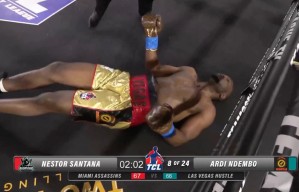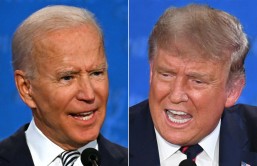Matt Wieters has played in 101 games (77 starts at catcher) since the start of 2014. Yet, the 29-year-old catcher will make $15.8 million in 2016 because the Baltimore Orioles gave him the qualifying offer earlier in the offseason.
Perhaps the O's had hoped another MLB club was going to offer him a multi-year contract, which would have given them a first-round draft pick in return if he were to sign elsewhere. Regardless, they should have known better that there would be limited interest in Wieters, especially with draft pick compensation tied to him, after he underwent Tommy John surgery in June 2014.
The veteran left Saturday's Grapefruit League game due to elbow soreness, the Orioles announced on Twitter.
Now they could be in a world of trouble.
Here are three reasons the Orioles were wrong to give Wieters the qualifying offer:
He's not worth the third-highest annual salary on the team
The only two players on the Orioles who will be earning more than Wieters in 2016 are Chris Davis ($23 million) and Adam Jones ($16.33 million). The former fifth overall pick in the 2007 MLB Draft, as mentioned earlier, has played in only 101 games over the past two seasons and has really only put up two formidable campaigns (2011, 2012) in his career.
He did hit 22 home runs and 79 RBI during the 2013 season, but he batted just .235 with an on-base percentage of .287 and logged the worst defensive showing of his career (-0.3 dWAR). From 2011-2013 he accumulated a WAR of just 2.1, which is certainly not worth nearly double his 2015 salary.
Caleb Joseph proved last year he can put up somewhat comparable numbers to Wieters
Joseph, also 29, isn't eligible for arbitration until after the 2017 season. He was the Orioles' primary option during Wieters' long absence last season and managed to hit .234/.299/.394 with 38 runs scored, 11 home runs and 49 RBI in 100 games (320 at-bats), which was his first MLB season playing in more than 82 contests.
Baseball-Reference.com projected his 162-game average to finish at .223/.284/.376 with 53 runs scored, 18 home runs and 69 RBI. Those aren't that good of numbers, but Joseph is playing for the league minimum and, as mentioned earlier, Wieters' 2013 campaign featured a stat line of .235/.287/.417 with 59 runs scored, 22 home runs and 79 RBI. Additionally, Joseph's 3.2 dWAR over the past two seasons (182 games) is better than Wieters' last 393 games (0.9 dWAR).
You don't think that $15.8 million could have been spent more responsibly?
The QO was only beneficial to Wieters
The Orioles were in a perfect position to retain Wieters on a one-year deal for much less money, as he needs to rebuild his value after his last three seasons (again, he put up solid 2013 numbers, but he recorded career lows in a number of categories). Sure, a number of other MLB clubs probably would have been interested in signing him to a similar deal, and the O's would have been at risk to losing to a higher bidder, but by no means was it necessary to outbid teams by as much as they did with the QO.
A one-year "prove it" contract should not be worth $15.8 million, especially for a player who hasn't been a factor on the team in two years. Now Wieters will have ample financial security if he were to underperform or suffer an injury in 2016, which can only help him.
He played only 55 games at catcher in 2015, which isn't nearly enough time for him to re-familiarize himself with the position or regain his arm strength at game speed.
He'll be the third-highest-paid catcher in baseball in 2016 behind only Buster Posey and Brian McCann.
Even though Wieters' salary did not affect the Orioles' ability to sign players this offseason, it was still a poor personnel and financial move for a team that is not known for its spending power.








